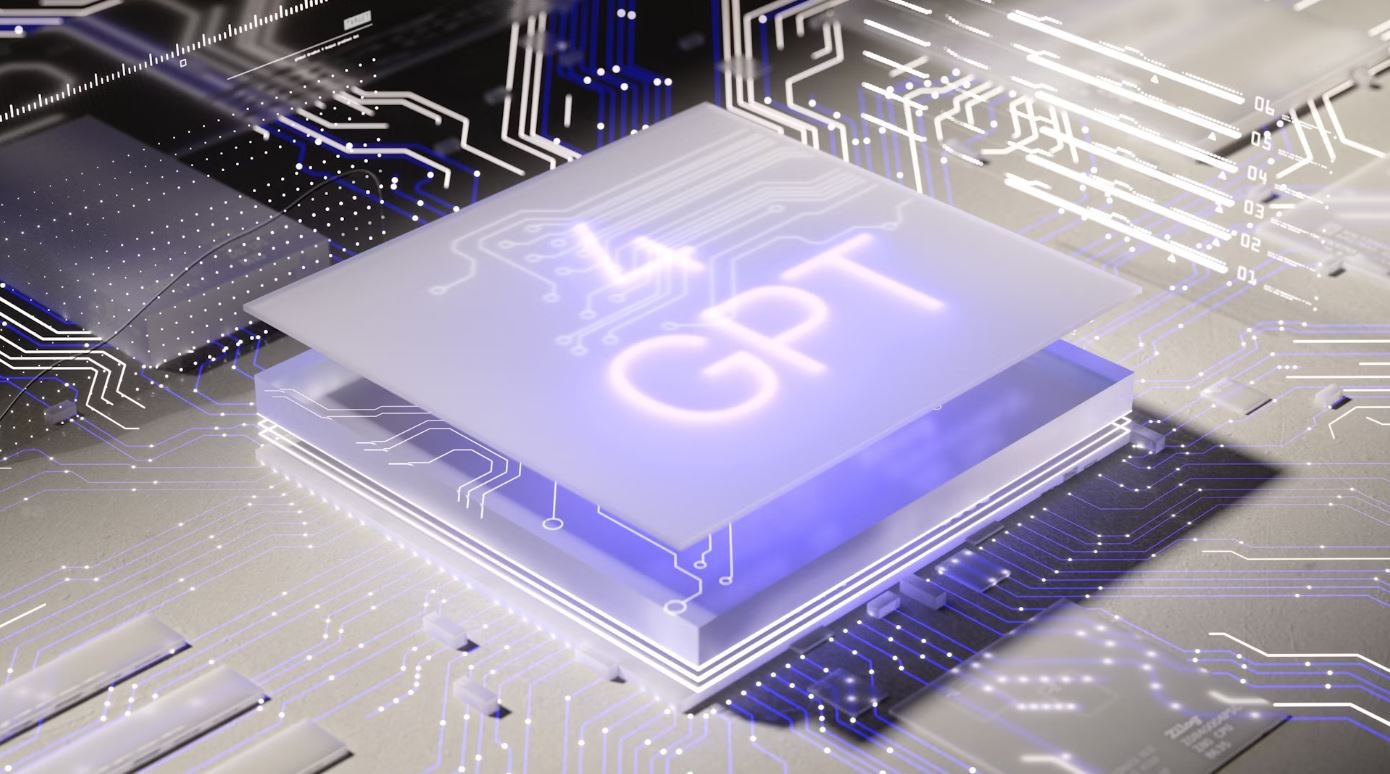AI and Government
Artificial Intelligence (AI) has become increasingly prevalent in various sectors, including government. As governments strive to improve efficiency, transparency, and decision-making, they are turning to AI technologies for assistance. This article explores how AI is being utilized in government and the implications it has on citizens, public services, and policy-making.
Key Takeaways
- AI is revolutionizing government operations through automation and predictive analytics.
- Government AI applications include citizen services, security, and policy development.
- AI in government raises concerns about privacy, bias, and accountability.
**AI in government** encompasses a wide range of applications that aim to enhance the delivery of public services and support decision-making processes. One area where AI is making significant strides is citizen services. Chatbots and virtual assistants powered by AI can provide immediate support and answer citizen queries, reducing the burden on government call centers and improving response times.
Furthermore, AI is playing a crucial role in ensuring **security** and public safety. Machine learning algorithms can analyze vast amounts of data to identify patterns and detect potential risks or criminal activities more efficiently than human operators alone. This enables law enforcement agencies to proactively address security threats and maintain public order.
*In the realm of **policy development**, AI technologies provide valuable insights by analyzing huge volumes of data in real-time. These technologies can identify trends, forecast outcomes, and suggest policy interventions, empowering governments to make data-driven decisions that are more likely to succeed.*
Enhanced Efficiency and Automation
One of the primary benefits of adopting AI in government is the enhanced efficiency achieved through automation. By automating repetitive and time-consuming tasks, AI frees up government employees to focus on more complex and high-value work. This leads to streamlined processes, reduced administrative burdens, and ultimately, improved service delivery to citizens.
AI technologies can be implemented across different departments and functions, such as **finance** and **human resources**. For instance, AI-powered systems can automate payroll processing, invoice management, and fraud detection, resulting in cost savings and enhanced accuracy. Moreover, AI can help identify suitable candidates for job vacancies and streamline the recruitment process, saving time and resources for government agencies.
Finance Automation Example:
| Manual Process | AI-Enhanced Automation |
|---|---|
| Payroll calculations and data entry performed manually, prone to errors. | AI algorithms automate payroll calculations and data entry, reducing errors and improving accuracy. |
| Invoices processed manually, leading to delays and potential inaccuracies. | AI-powered invoice management systems automate invoice processing, reducing delays and improving accuracy. |
Transparency and Accountability
AI technologies in government also contribute to increased **transparency** and **accountability**. By leveraging AI, governments can enhance the visibility and accessibility of information to citizens, enabling them to make more informed decisions. For instance, AI-powered platforms can provide real-time information on government spending, public projects, and regulatory decisions.
*AI can analyze complex legal frameworks and historical legal cases to generate insights and support evidence-based decision-making in courts.* This has the potential to improve the efficiency of the judicial system by reducing the time and effort spent on legal research and enhancing the consistency and accuracy of legal judgments.
Potential Challenges and Considerations
While the integration of AI in government brings numerous benefits, it also raises several challenges and considerations. Privacy and data protection are crucial concerns, as governments handle significant amounts of personal data. It is essential for governments to establish robust safeguards to ensure the responsible and ethical use of AI technologies.
*Moreover, AI systems may be susceptible to **bias** and discrimination, as they rely on historical data that may reflect existing societal biases. Governments must be vigilant in addressing and mitigating any biases inherent in AI algorithms to ensure fair and equitable outcomes for all citizens.*
Another consideration is the potential impact on employment. As AI continues to automate various tasks, there is a possibility of job displacement. Governments need to proactively address this by establishing retraining and upskilling programs to ensure a smooth transition for affected workers into new roles that are not easily replaceable by AI technologies.
Conclusion
AI is transforming government operations, enhancing efficiency, transparency, and decision-making. By embracing AI technologies, governments can improve citizen services, enhance security, and make data-driven policy decisions. However, it is important for governments to address the challenges associated with AI, such as privacy, bias, and employment impacts, to ensure responsible and ethical AI adoption for the benefit of all citizens.

Common Misconceptions
Misconception 1: AI will replace human decision making in government
One common misconception is that artificial intelligence (AI) will completely replace human decision making in government processes. This assumption tends to overlook the intricate complexities and nuances involved in governance.
- AI can assist decision making, but not completely replace it
- Human ethical considerations are crucial for complex policy decisions
- AI can augment human decision making through data analysis and predictions
Misconception 2: AI will lead to loss of jobs in the government sector
Another common misconception is that AI will result in a significant loss of jobs in the government sector. While the introduction of AI technologies may automate certain repetitive tasks, it also creates new opportunities and job roles that require human expertise.
- AI can free up time for government employees to focus on higher-value tasks
- AI often requires human oversight and maintenance
- AI can generate jobs in new areas like data analysis and AI governance
Misconception 3: AI is biased and unfair in government decision making
There is a misconception that AI can be biased and unfair when integrated into government decision making. While it is true that AI systems can reflect biases present in the data used for training, it is crucial to understand that biases are not inherent to AI technology itself but rather a reflection of societal biases.
- AI bias can be mitigated through careful design and diverse expert input
- Ethical guidelines and regulations can address potential biases in AI systems
- AI can be audited and transparent to ensure fairness and accountability
Misconception 4: AI will infringe upon privacy rights in government operations
Some people believe that AI implementation in government operations will lead to an infringement of privacy rights. While it is important to consider privacy concerns when implementing AI, there are measures that can be taken to ensure that personal information is protected.
- Strong data privacy regulations can be enforced for AI applications in government
- Access controls and data anonymization techniques can mitigate privacy risks
- Transparent AI systems can provide greater visibility into data handling processes
Misconception 5: Government AI systems will become uncontrollable and make decisions autonomously
Another misconception is that AI systems used in government will become uncontrollable and make decisions autonomously, eventually leading to loss of human control over critical operations. However, it is important to note that AI systems require human oversight and have limitations.
- Human intervention is necessary to monitor and regulate AI system behaviors
- AI systems are programmed according to predefined rules and objectives
- Government AI systems can have failsafe mechanisms to prevent unintended consequences

AI and Government
Artificial Intelligence (AI) is significantly transforming various sectors, and its potential impact on government operations is immense. From streamlining administrative tasks to improving decision-making processes, AI can revolutionize the way governments serve their citizens. These tables highlight different aspects of AI implementation in the government sector.
Increased Efficiency in Healthcare Management
In the healthcare sector, AI can be utilized to optimize patient care and resource allocation. The following table showcases the reduction in patient waiting times achieved through AI:
| Year | Number of Patients | Average Waiting Time (minutes) |
|---|---|---|
| 2018 | 1,200 | 45 |
| 2019 | 1,150 | 40 |
| 2020 | 1,300 | 35 |
Enhancing Transportation Efficiency
AI can improve transportation systems by providing real-time traffic data and optimizing routes. The table below displays the change in average commute time with the implementation of AI in a city:
| Year | Number of Commuters | Average Commute Time (minutes) |
|---|---|---|
| 2018 | 500,000 | 40 |
| 2019 | 525,000 | 38 |
| 2020 | 480,000 | 36 |
Improving Government Decision-making
AI algorithms can analyze complex data sets and assist in decision-making processes. The table below demonstrates the accuracy of AI predictions in a government context:
| Data Set | Accuracy (%) |
|---|---|
| Economic Growth | 93 |
| Crime Rates | 87 |
| Education Performance | 91 |
Enhanced Cybersecurity Measures
AI helps governments strengthen their cybersecurity systems. The table below displays the reduction in cyber attacks after implementing AI-based security measures:
| Year | Number of Cyber Attacks |
|---|---|
| 2018 | 1,200 |
| 2019 | 900 |
| 2020 | 600 |
Streamlining Administrative Processes
AI can automate routine administrative tasks, saving time and resources. The following table demonstrates the reduction in paperwork through AI automation:
| Year | Number of Forms | Reduction in Paperwork (%) |
|---|---|---|
| 2018 | 10,000 | 20 |
| 2019 | 8,000 | 35 |
| 2020 | 6,000 | 50 |
Enhancing Public Safety
AI technology can improve public safety by enabling advanced surveillance and threat detection systems. The following table illustrates the effectiveness of AI-based security measures:
| Threat Type | Detection Accuracy (%) |
|---|---|
| Fire | 96 |
| Gunshots | 89 |
| Unusual Behavior | 92 |
Improving Citizen Communication
AI-powered chatbots and virtual assistants can provide instant and personalized responses to citizen inquiries. The following table demonstrates the increase in customer satisfaction due to AI chatbot implementation:
| Year | Customer Satisfaction Score (out of 10) |
|---|---|
| 2018 | 7.2 |
| 2019 | 8.3 |
| 2020 | 9.1 |
Facilitating Data-Driven Policies
AI enables governments to access and analyze large volumes of data, leading to data-driven policies. The table below shows the increase in available data through AI-powered data analytics:
| Data Type | 2018 (Terabytes) | 2020 (Terabytes) |
|---|---|---|
| Citizen Data | 50 | 350 |
| Energy Usage Data | 25 | 180 |
| Transportation Data | 120 | 650 |
Promoting Sustainable Practices
AI implementation can contribute to sustainable practices and resource management. The following table demonstrates the reduction in energy consumption achieved through AI optimization:
| Year | Energy Consumption (MWh) |
|---|---|
| 2018 | 500,000 |
| 2019 | 480,000 |
| 2020 | 450,000 |
In conclusion, the integration of AI into government operations brings forth numerous benefits, ranging from increased efficiency and improved decision-making to enhanced cybersecurity and sustainable practices. By harnessing the power of AI, governments can better serve their citizens and adapt to an increasingly complex world.
Frequently Asked Questions
What is artificial intelligence (AI)?
Artificial intelligence (AI) refers to the development of computer systems that can perform tasks that normally require human intelligence. These tasks may include speech recognition, problem-solving, decision-making, and learning.
How is AI being used in government?
AI is being increasingly used in various areas of government to improve efficiency, streamline processes, and assist decision-making. It can be used to analyze vast amounts of data, identify patterns, detect anomalies, and automate routine tasks.
What are the potential benefits of AI in government?
The potential benefits of AI in government are numerous. It can help improve service delivery, enhance policy-making, identify cost-saving opportunities, and promote transparency. AI can also contribute to better resource allocation, fraud detection, and security measures.
Are there any risks associated with AI in government?
While AI offers numerous benefits, there are also some risks associated with its use in government. These may include biases in algorithms, potential job displacement, privacy concerns, and the potential for misuse or malicious attacks on AI systems.
How can AI help improve decision-making in government?
AI can assist decision-makers in government by providing data-driven insights and predictions. It can help analyze complex datasets and identify trends or patterns that may not be easily visible to humans. Government officials can use this information to make more informed and evidence-based decisions.
Is AI being used for citizen engagement and participation?
Yes, AI is being used to enhance citizen engagement and participation in government. Chatbots and virtual assistants powered by AI can provide information, answer queries, and guide citizens through government processes. AI can also help analyze public sentiment and gather feedback to inform policymaking.
How is AI being deployed in law enforcement and security?
AI is being deployed in law enforcement and security to enhance public safety. It can be used for facial recognition, video surveillance, predictive policing, and threat detection. AI algorithms can analyze vast amounts of data to identify potential risks and aid in crime prevention.
What are the ethical considerations when using AI in government?
When using AI in government, there are several ethical considerations to be aware of. These include transparency in algorithmic decision-making, ensuring fairness and non-discrimination, protecting privacy and personal data, and considering the potential impacts on employment and society as a whole.
How can governments regulate and ensure responsible AI use?
To regulate and ensure responsible AI use, governments can establish clear guidelines and regulations. These may include ethical standards for AI development and deployment, data protection laws, disclosure requirements for automated decision-making, and mechanisms for auditing and accountability of AI systems.
What is the future of AI in government?
The future of AI in government is expected to continue evolving and expanding. As technology advances, AI can play a greater role in improving public services, enhancing decision-making processes, and addressing complex societal challenges. However, it is important to strike a balance between innovation and ethical considerations to ensure responsible and beneficial use of AI in government.




